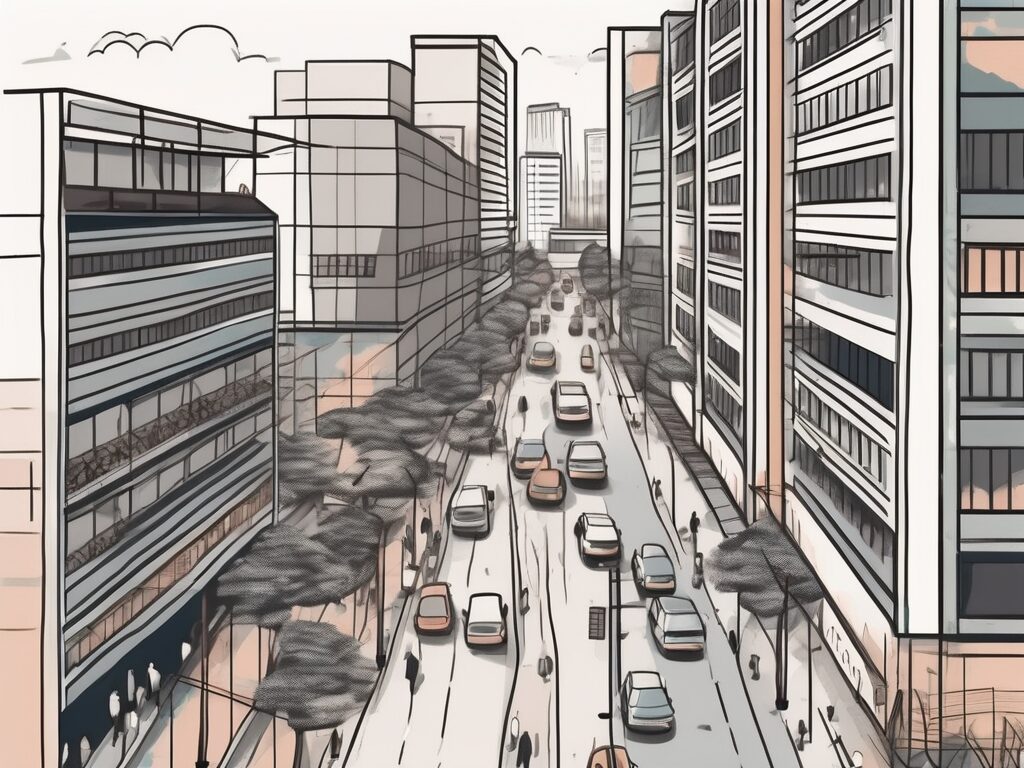Education is a fundamental right, a crucial stepping stone towards personal development and a prerequisite for social and economic progress. Despite the universal recognition of its importance, access to quality education remains a significant challenge in many parts of the world. One such place is Bangkok, the bustling capital city of Thailand. This article aims to shed light on the various barriers to education in Bangkok, exploring the root causes, implications, and potential solutions to these challenges.
Financial Constraints
One of the most significant barriers to education in Bangkok is financial constraints. Many families in the city, particularly those from lower-income backgrounds, struggle to afford the costs associated with schooling. This isn’t just about tuition fees, but also includes the cost of uniforms, textbooks, transportation, and other school-related expenses.
Comparatively, this situation is quite similar to what we see in many developing countries where poverty acts as a significant obstacle to education. The financial burden often forces children to drop out of school and engage in labour to support their families, thereby perpetuating the cycle of poverty.
Government Funding
Government funding for education in Bangkok is often inadequate, particularly for public schools. The lack of sufficient funds results in overcrowded classrooms, lack of teaching resources, and poorly maintained infrastructure, all of which negatively impact the quality of education.
It’s a bit like trying to bake a cake without enough ingredients. You might manage to produce something, but it’s unlikely to be as good as it could be with the right resources. The same principle applies to education. Without adequate funding, it’s challenging to provide a high-quality learning environment.
Social and Cultural Barriers
Another significant barrier to education in Bangkok is the prevailing social and cultural norms. In many communities, education is often seen as less important for girls, leading to a higher dropout rate among female students. This gender bias in education is not unique to Bangkok; it’s a global issue that continues to hinder educational progress.
Imagine a football team where only half the players are allowed to play. It’s clear that the team won’t perform as well as it could if all players were given an equal chance. The same applies to education. When half the population is denied equal educational opportunities, it’s not just those individuals who suffer; society as a whole is held back.
Language Barriers
Language barriers also pose a significant challenge to education in Bangkok. While Thai is the official language, there’s a considerable number of students from ethnic minority backgrounds who struggle with the Thai language. This language barrier often results in these students falling behind in their studies.
Think of it like trying to follow a recipe written in a language you don’t understand. No matter how hard you try, you’re likely to struggle to get the desired results. In the same way, students who don’t understand the language of instruction are at a significant disadvantage.
Quality of Education
The quality of education in Bangkok is another significant barrier. Many schools, particularly those in disadvantaged areas, lack qualified teachers and adequate learning resources. This results in a lower quality of education, which in turn discourages students from continuing their studies.
It’s akin to trying to build a house with poor quality materials. The end result is likely to be substandard and may even collapse. Similarly, an education system that lacks quality resources is unlikely to produce well-educated, competent individuals.
Curriculum Relevance
The relevance of the curriculum is another issue. Many critics argue that the current curriculum does not adequately prepare students for the realities of the modern world. This lack of relevance can discourage students from seeing the value of education, leading to higher dropout rates.
Imagine studying for a driving test by reading a book about sailing. It’s unlikely to be very helpful. In the same way, a curriculum that doesn’t reflect the needs and realities of the modern world is unlikely to engage students or prepare them for the future.
Conclusion
Overcoming the barriers to education in Bangkok is a complex task that requires the collective efforts of government, educators, parents, and the wider community. By addressing financial constraints, challenging harmful social norms, breaking down language barriers, and improving the quality and relevance of education, it’s possible to make significant strides towards ensuring that all children in Bangkok have access to the education they deserve.
Just as a journey of a thousand miles begins with a single step, the journey towards educational equity in Bangkok must begin with acknowledging and addressing these barriers. It’s a challenging journey, no doubt, but one that holds the promise of a brighter future for the city’s children.
Empower Your Teaching Career with IPGCE
As we strive to dismantle the barriers to education in Bangkok, it’s essential for educators to enhance their qualifications and join the vanguard of change. IPGCE offers a beacon of hope for teachers seeking to elevate their credentials and impact the future of education. By participating in the International Postgraduate Certificate in Education, you not only gain the expertise to navigate the complexities of global education systems but also unlock new career opportunities, connect with a worldwide network of professionals, and achieve a harmonious balance between your professional development and existing commitments. Take the first step towards transforming educational barriers into stepping stones for success. Join the UK’s #1 Teacher Training Course and be the change you wish to see in the educational landscape of Bangkok and beyond.

